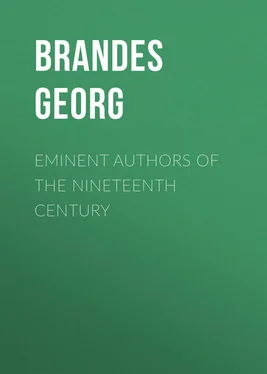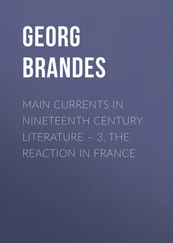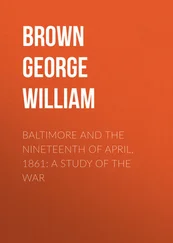Georg Brandes - Eminent Authors of the Nineteenth Century
Здесь есть возможность читать онлайн «Georg Brandes - Eminent Authors of the Nineteenth Century» — ознакомительный отрывок электронной книги совершенно бесплатно, а после прочтения отрывка купить полную версию. В некоторых случаях можно слушать аудио, скачать через торрент в формате fb2 и присутствует краткое содержание. Жанр: foreign_antique, foreign_prose, на английском языке. Описание произведения, (предисловие) а так же отзывы посетителей доступны на портале библиотеки ЛибКат.
- Название:Eminent Authors of the Nineteenth Century
- Автор:
- Жанр:
- Год:неизвестен
- ISBN:нет данных
- Рейтинг книги:5 / 5. Голосов: 1
-
Избранное:Добавить в избранное
- Отзывы:
-
Ваша оценка:
- 100
- 1
- 2
- 3
- 4
- 5
Eminent Authors of the Nineteenth Century: краткое содержание, описание и аннотация
Предлагаем к чтению аннотацию, описание, краткое содержание или предисловие (зависит от того, что написал сам автор книги «Eminent Authors of the Nineteenth Century»). Если вы не нашли необходимую информацию о книге — напишите в комментариях, мы постараемся отыскать её.
Eminent Authors of the Nineteenth Century — читать онлайн ознакомительный отрывок
Ниже представлен текст книги, разбитый по страницам. Система сохранения места последней прочитанной страницы, позволяет с удобством читать онлайн бесплатно книгу «Eminent Authors of the Nineteenth Century», без необходимости каждый раз заново искать на чём Вы остановились. Поставьте закладку, и сможете в любой момент перейти на страницу, на которой закончили чтение.
Интервал:
Закладка:
"'Have you really courage to go forth with me into the wide world?' asked the chimney-sweep, tenderly. 'Have you considered how large it is, and that we can never come back here again?' 'I have,' said she. And the chimney-sweep gazed fixedly upon her, and then he said: 'My way lies up the chimney. Have you really courage to go with me through the stove, and to creep through all the flues?' … And he led her towards the door of the stove. 'It looks quite black,' said she, but still she went with him and on through all the intricacies of the interior, and through the flues, where a pitchy darkness reigned." After long, long troublesome ascent they reached the top of the chimney and seated themselves on its edge. "The heaven and all its stars were above them, and all the roofs of the town below them; they could see far around, far away into the world. The poor shepherdess had never pictured it to herself thus; she leaned her little head on her sweep, and wept so bitterly that all the gilding of her girdle came off. 'O this is too much!' said she; 'I cannot bear it. This world is too large. O were I but again on the little table under the looking-glass! I shall never be happy till I am there again. I have followed you into the wide world; now, if you really love me, you may follow me home again.'"
A more profound, more mercilessly true, more self-evident analysis of a certain kind of feminine enthusiasm and its energy when it undertakes to act boldly without regard to consequences, and without looking backwards, can be found, I think, in the works of no other Danish writer. What delicacy of presentation: the momentary resolute enthusiasm, the heroic conquering of the first horror, the endurance, bravery, firmness, until the moment which requires courage, when the firmness is shattered, and the yearning for the little table under the looking-glass is awakened. Many a voluminous romance would have been exalted by such a page, and we find in it a compensation for the fact that Andersen is no master in the province of the romance. The drama is a species of poetic production that requires the faculty for differentiating an idea and distributing it among many characters; it requires an understanding of conscious action, a logic power to guide this, an eye to the situation, a passion for becoming absorbed and overwhelmed in the inexhaustible study of individual, many-sided characters. Therefore it is that the drama is still farther removed from the genius of Andersen than the romance, and that his lack of capacity for the dramatic style increases with mathematical exactness in the same ratio as each variety of dramatic art is removed from the nursery story, and consequently from his gifts. He naturally succeeds best with the nursery-story comedy; although, to be sure, it possesses little more of comedy than the name. It is a mixed species, and if it were put to the test of the Spanish story, it would be recognized as a bastard. In the comedy of special situations he is happy with respect to the poetic execution of single scenes ("The King's Dream"), but singularly unfortunate in the execution of the idea as a whole ("The Pearl of Good Fortune"). The comedy proper is not poorly suited to his gifts. Certain of his nursery stories are, indeed, veritable Holberg comedies; "The Happy Family" is a Holberg character-comedy, and "It is Quite True" possesses a decided Holberg plot. In stories of this kind character delineation comes easier to him than in the grave drama, for in them he walks directly in the footsteps of Holberg, so strikingly does his talent accord in a single direction with that of this early Northern dramatist. Andersen is, as I have already remarked, no direct psychologist; he is rather a biologist than an especially well-informed student of human nature. His predilection is for describing man through animals or plants, and seeing him develop from the rudiments of his nature. All art contains an answer to the question, What is man? Inquire of Andersen how he defines man, and he will reply, Man is a swan hatched in the "duck-yard" of Nature.
To a person who takes an interest in psychological investigations, who, without being able to grasp a complex character, possesses a refined development of observation for single qualities, for characteristic peculiarities, animals, especially those with which we are familiar, afford great relief. We are usually accustomed to credit each animal with an individual attribute, or at all events, with a limited group of attributes. The snail is slow, the nightingale is the unpretending singer with the glorious voice, the butterfly is the fair inconstant one. There is nothing then to prevent the poet who possesses the gifts needed to represent these striking little traits, from following in the footsteps of Holberg, the man who wrote "Den Vægelsindede" (The Fickle One), as Andersen did in "The New Lying-In Room." He betrays here, moreover, one of his many points of similarity with Dickens, whose comic characterizations are frequently limited to a few traits repeated ad infinitum.
In the epopee, which belongs in our day to the impossible forms of poetry and which demands all the qualities that Andersen lacks, he can merely find play for certain petty fancies, as for instance, when he characterizes the spirit of China, in his "Ahasuerus," in a droll lyric episode, or when he permits the twittering swallows (exactly as in a nursery story) to describe the festal hall of Attila.
In his descriptions of travel very naturally a large number of his best qualities come to light. Like his favorite, the migratory bird, he is in his element when he travels. He observes with the eye of a painter, and he describes like an enthusiast. Yet even here two faults are apparent: one is that his lyric tendency at times runs away with him, so that he chants a hymn of praise instead of giving a description, or exaggerates instead of painting (see, for instance, the gushing and untrue description of Ragatz and Pfäffers); the other, that the underlying, personal, egotistical element of his nature, giving evidence that his innermost personality lacks reserve, occasionally obtrudes itself in a most disturbing manner.
The latter tendency characterizes with especially marked force the style of his autobiography. The criticism that can with justice be made on his "Story of My Life" is not so much that the author is throughout occupied with his own private affairs (for that is quite natural in such a work); it is that his personality is scarcely ever occupied with anything greater than itself, is never absorbed in an idea, is never entirely free from the ego. The revolution of 1848 in this book affects us as though we heard some one sneeze; we are astonished to be reminded by the sound that there is a world outside of the author.
In lyric poetry Andersen has met with foreign success – even Chamisso has translated some of his songs; yet I am always loath to see him lay aside his bright colored, realistic prose dress, that is so true to nature, in order to veil himself in the more uniform mantle of verse. His prose has fancy, unrestrained sentiment, rhythm, and melody. Why, then, cross the brook to find water? His poems, too, are frequently distinguished by a peaceful and childlike spirit, a warm and gentle sentiment. We see that the result of his attempts in the different regions of poetry proceeds quite directly, like the unknown x in mathematics, from the nature of his talents on one side, and the nature of the kind of poetic creation he has chosen on the other.
Thus the nursery story remains his sole individual creation, and for it he requires no patent, since no one is likely to rob him of it. In Andersen's day it was a common thing to attempt to classify all kinds of poetic creations with their varieties in an æsthetic system, according to the method of Hegel; and Hegel's Danish disciple, Heiberg, projected a complicated system in which the rank of the comedy, the tragedy, the romance, the nursery story, etc., was definitely fixed, while to Heiberg's own art-form an especially high rank was accorded. It is, however, in a certain measure pedantic to speak of general classes of art. Every creative artist thoroughly individualizes his own species of art. The form which he has used, no other has it in his power to use. So it is with the nursery story, whose theory Andersen made no attempt to describe, whose place in the system there has been no effort to establish, and which I, for one, should take good care not to define. There is, indeed, something very curious about æsthetic systematic classification; it impresses one very much in the same way as division of rank in the State: the more one broods over it, the more heretical one becomes. Perhaps this arises from the fact that to think is in the main synonymous with becoming a heretic. Yet like every natural type, Andersen's nursery story has its individual character, and his theories are comprised in the laws it obeys, whose boundaries it may not overstep without bringing to light a monster. Everything in the world has its law, even that species of poetry which transcends the laws of nature.
Читать дальшеИнтервал:
Закладка:
Похожие книги на «Eminent Authors of the Nineteenth Century»
Представляем Вашему вниманию похожие книги на «Eminent Authors of the Nineteenth Century» списком для выбора. Мы отобрали схожую по названию и смыслу литературу в надежде предоставить читателям больше вариантов отыскать новые, интересные, ещё непрочитанные произведения.
Обсуждение, отзывы о книге «Eminent Authors of the Nineteenth Century» и просто собственные мнения читателей. Оставьте ваши комментарии, напишите, что Вы думаете о произведении, его смысле или главных героях. Укажите что конкретно понравилось, а что нет, и почему Вы так считаете.












